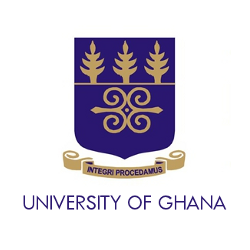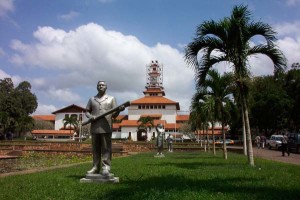2015
Celebrating 155 years of Indians in South Africa, 11-15 November 2015, CfP
Theme: Ethnicity, Race and Citizenship: Place of Indians in the New South Africa
Venue: Howard College Campus, University of KwaZulu Natal, Durban, South Africa
Conference Registration Fee: $120 (USD)
Early Registration Fee: $100 (USD) before 30 October, 2015
Student Registration Fee: $75 USD
Abstract Submission Deadline: 31 July, 2015
For further details: CfP.155 years of Indians in SA
2015
Seminar Legacies of Albert Schweitzer Considered: 15-16 October 2015, UNISA, Pretoria, CfP
Seminar Legacies of Albert Schweitzer Considered: 15-16 October 2015, UNISA, Pretoria, South Africa
Call for papers
Deadline for abstracts: 30 April 2015
Cf. also http://www.unisa.ac.za/ritr2015
2015
AASR Conference in Ghana
_____________________________________________________________________
7th BIENNIAL AASR CONFERENCE IN AFRICA
RELIGION, SEXUALITY, AND IDENTITY IN AFRICA & THE AFRICAN DIASPORA
Institute of Statistical, Social and Economic Research (ISSER)
University of Ghana, Legon, Accra
July 26-29, 2016
Tentative Conference Programme
(Click to view and download PDF)
CALL FOR PAPERS
Secularism as a dominant human experience in the age of globalisation presents a notion of an inclusive religious, cultural and moral evolution. However, a plurality of religions, cultures, genders, sexualities, sexual orientations and identities is emerging in association with secularism. Though some of these issues are not particularly new on the African continent, they are taking new forms and vitality and have become topical and, at times, flashpoints in several African societies and diasporic communities. Consequently, discourses (oral and written) on these issues reveal diverse and sometimes sentimental and pedestrian perspectives, mainly grounded on typically religious, cultural and moral claims. At the same time there is limited academic scholarship on the issues. With the African continent currently grappling with some moral issues such as same-sex relationships (LGBT), it is critical for scholars in the study of religions to dispassionately deliberate, explore and provide informed contributions to the debate in this era of rapid social change. This AASR conference provides the right place and space for scholars of different disciplinary traditions to rigorously examine this issue.
The conference invites panel and paper proposals that address this theme and related issues from critical perspectives, taking into consideration the specific contexts of Africa and the African diaspora. This research and related discourses are relevant as we seek to chart the path for the future of Africa and its diaspora.
Papers that engage any of the following and related issues are invited for presentation at this conference:
- Religious and moral underpinnings of gender in Africa and the African diaspora
- Sexuality in Africa and the African Diaspora
- Teaching African sexualities in Africa and/or the African diaspora
- Masculinities and masculinity studies in Africa and the African diaspora
- Femininities: plurality and the debate on feminism in Africa and the African diaspora
- Religion, masculinities, gender-based violence and HIV
- Queering, xenophobia and violence in Africa and the African Diaspora
- Sexualities, sexual orientations, violence and human rights in Africa and the African diaspora
- Religion, migration, class and sexuality
- Religious views of humanity and the LGBT debate in Africa
- The LGBT debate and North-South ecumenical/interfaith relations
- Religion, sexuality and the media
- Religion, sexuality and law
- Philosophy, person and gender
- Philosophy, human identity and sexuality
In addition, at least two special panels will focus on issues of theory and method in the study of religion(s) in Africa with special reference to the theme of the conference.
ABSTRACTS
- Abstracts of proposed papers should not exceed three hundred (300) words. Authors should ensure that abstracts reflect the title of their paper(s).
- Author’s contact details (name, institutional affiliation, email address and phone number) should be provided in a separate page or sheet.
- All submissions are to be made electronically using aasr2016@ug.edu.gh
- Abstracts are to be received by 31 December 2015.
|
Type of Registration |
Regular Members |
Student Members |
Early Bird Rate (Now—30 April) |
$160 |
$100 |
Late Registration Rate (After 30 April) |
$180 |
$120 |
One-Day Rate |
$60 |
$40 |
Two-Day Rate |
$100 |
$80 |
Conference registration includes the following: entrance to the conference, conference materials, light refreshments during the day, and dinner on 26 and 27 July.
Registration costs can be paid directly into the AASR central bank account: African Association for the Study of Religions, Bank of Scotland Branch Code: 80-20-00 Account No. 00208442; BIC:BOFSGB21168; IBAN: GB05 BOFS 8020 0000 2084 42
If you are unable to pay into the AASR central bank account, please contact your country/regional representative and pay to them directly. Otherwise, email the organizers (aasr2016@ug.edu.gh) and let them know you will be bringing your payment (in USD) to the conference.
NOTE: the above registration rates are for AASR members who have paid their membership dues for 2016. For members in Europe, America and other western or stronger economy countries, the annual fee is $60. For members from other countries the annual fee is $30. Students and retired persons are to pay half of the annual fee for their country. For more information and to join the AASR and/or to pay dues online, visit the AASR website (https://www.a-asr.org//membership/), or email the AASR Treasurer, Abel Ugba (A.Ugba@uel.ac.uk).
NOTE: participants interested in having their abstracts in the conference ‘book of abstracts’ must register by 31 May.
NOTE: participants should submit their draft papers by 30 June.
Additional Conference Costs |
|
Conference Dinner |
$45 |
Cape Coast Castles Excursion |
$47 |
NOTE ON EXCURSION: the excursion will tour the Cape Coast including two of the castles (Elmina Castle and Cape Coast Castle) used for the Trans-Atlantic slave trade. This is an essential part of the conference and provides a critical gateway to discussions about the African Diaspora. These connections will be further explored in the plenary lecture by Prof. Bright Kozuo Gavua, Associate Professor of Archaeology and Heritage Studies and Dean, School of Arts, College of Humanities, University of Ghana.
CONFERENCE ACCOMMODATION
University of Ghana Campus Accommodation
The Institute of African Studies Yiri Lodge and University of Ghana Guest Centre is now fully booked. There is, however, still off-campus accommodation available below.
Off-Campus Accommodation
Option #1: Hotel Obama
www.HOTELOBAMAGHANA.COM ; hotelobamaghana@gmail.com
- Rate (flat) – $70.00
Option #2: Erata Hotel
www.eratahotel.com Email: info@eratahotel.com Contact: +233 (0) 544 3367 61
- Standard $100.00
- Double occupancy – $120.00
- Airport pick-up available
- This rate applies to conference attendees irrespective of length of stay
For further enquires, please contact Rose Mary Amenga-Etego: aasr2016@ug.edu.gh
2015
Material Religion: Embodiment, Materiality, Technology, CfP, Duke University, September 11-12, 2015
Material Religion: Embodiment, Materiality, Technology, Call for Papers, Interdisciplinary Conference, Duke University, September 11-12, 2015
2015
African PhD Students’ Experiences and Research Perspectives: Call for papers
African PhD Students’ Experiences and Research Perspectives: Call for papers


